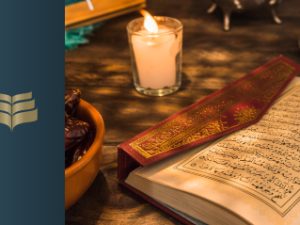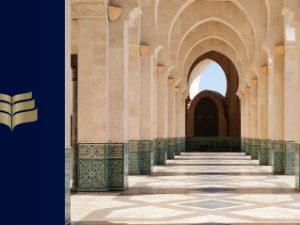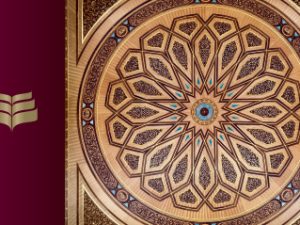Shama'il Muhammadiyyah
- Description
- Curriculum

Our history starts with the Prophet (صلى الله عليه وسلم). A person should seek knowledge of the Prophet (صلى الله عليه وسلم) since it is one of the things which he will be asked about when he is buried in his grave, and this knowledge is achieved by studying his (صلى الله عليه وسلم) life history. Studying the life of the Prophet (صلى الله عليه وسلم) was a habit of the pious predecessors to such an extent that they used to teach their children the Seerah just as they used to teach them the other vital sciences such as Fiqh and Qur’aan. So whoever wishes to increase his eemaan then he should study what he can about his (صلى الله عليه وسلم) life. As a result of studying his (صلى الله عليه وسلم) life one will know the path to success and the method to how Islaam will rise again. It is important to study the early history of Islaam because it exemplifies the correct implementation of the Islamic teachings. Studying the Seerah is studying a miracle. Ibn Hazm said, “Studying the magnificent seerah of the Prophet (صلى الله عليه وسلم) necessitates belief in him – that he was a messenger of Allaah. If he (صلى الله عليه وسلم) had no other miracle save his seerah, then that surely would suffice.”
This course is based on the reletively brief ‘Mukhtasar Sirah An Nabi’ (Abridged Biography of the Prophet) by Hafidh Abdul Ghani Al Maqdisi, which is unlike most books of biography of the Prophet, concentrating on Shama’il (characteristics) and the interactions of the Messenger صلى الله عليه وسلم.
In this course you will learn:
– Who is Muhammad (صلى الله عليه وسلم)?
– Why is it important to study the Seerah of the Prophet (صلى الله عليه وسلم)?
– How can we benefit from studying the Seerah of the Prophet (صلى الله عليه وسلم)?
– What was the circumstance of Arabia and its People before Islaam?
– What lessons can we learn from his (صلى الله عليه وسلم) life before Prophethood?
– What lessons can we learn from his (صلى الله عليه وسلم) life during his time in Makkah, after – Prophethood?
– What benefits can we derive from his (صلى الله عليه وسلم) life when migrating to Madeenah?
– What lessons and benefits can we take from all the battles that took place in his (صلى الله عليه وسلم) lifetime?
– What benefits can we derive from his (صلى الله عليه وسلم) life in Madeenah?
– Who were his (صلى الله عليه وسلم) wives? Who were his (صلى الله عليه وسلم) companions?
– How did he (صلى الله عليه وسلم) call the people to Islaam?
– How was the Prophet (صلى الله عليه وسلم) with the believers?
– How was he (صلى الله عليه وسلم) with the disbelievers?
– What was he (صلى الله عليه وسلم) like as a Political leader?
-
1Shama'il Muhammadiyyah - Lesson 1
-
2Shama'il Muhammadiyyah - Lesson 2
-
3Shama'il Muhammadiyyah - Lesson 3
-
4Shama'il Muhammadiyyah - Lesson 4
-
5Shama'il Muhammadiyyah - Lesson 5
-
6Shama'il Muhammadiyyah - Lesson 6
-
7Shama'il Muhammadiyyah - Lesson 7
-
8Shama'il Muhammadiyyah - Lesson 8
-
9Shama'il Muhammadiyyah - Lesson 9
-
10Shama'il Muhammadiyyah - Lesson 10
-
11Shama'il Muhammadiyyah - Lesson 11
-
12Shama'il Muhammadiyyah - Lesson 12
-
13Shama'il Muhammadiyyah - Lesson 13
-
14Shama'il Muhammadiyyah - Lesson 14





